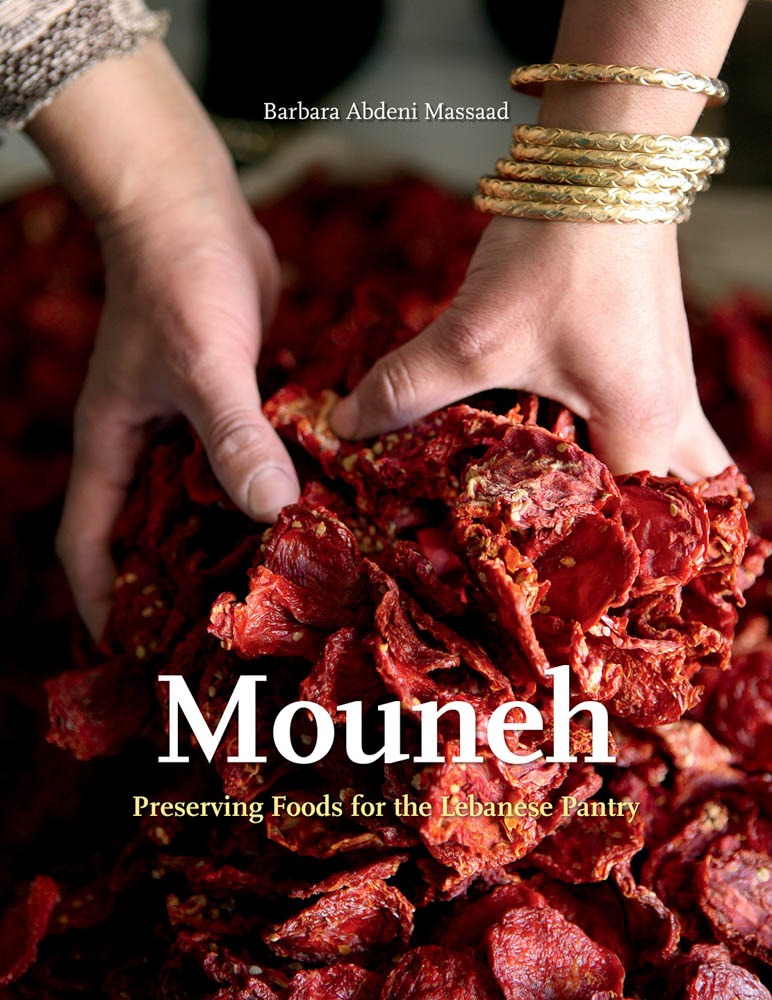
Mouneh: Preserving Foods for the Lebanese Pantry
Tom Verde
Barbara Abdeni Massaad
2018, Interlink Books, 978-1-56656-036-8, $50 hb.
Mouneh, “from the Arabic word mana, meaning ‘storing,’” is a custom that “continues to flourish in many parts of Lebanon,” writes Massaad, a Beirut native. Pickling, salting, sun-drying, sweetening with sugar or packing in oil—all these methods date back centuries in the region. They evoke memories of grandparents putting up fruit preserves and pickling garden vegetables. Massaad looks to this know-how, and history, in this expansive volume about how to preserve produce, from fresh herbs (sage, rosemary, wild thyme) to fruit jams (watermelon, fig, black sour cherry), to vegetables (stuffed eggplant in oil, red pepper paste) and cracked wheat and yogurt (kishk), a Bekaa Valley specialty. Reflecting the natural rhythms of food production, the book’s sections are arranged seasonally. Mastering many of these recipes will require time and practice. Yet the rewards of preserving one’s own food, Massad promises, can be gratifying.
You may also be interested in...

Archaeology and Geology of Ancient Egyptian Stones—Book Review
In categorizing the stones the ancient Egyptians used, author James A. Harrell unites geology, archeology and cultural history in one monumental reference.
Historic Mosques in Sub-Saharan Africa
From Mali to Tanzania, historian Stéphane Pradines traces a thousand years of Islamic architecture that forces us to rethink what we know about Africa’s past.